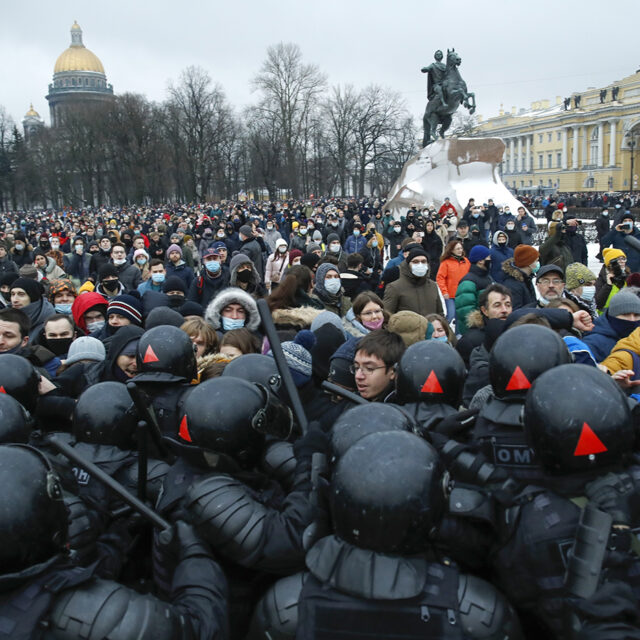Five months after he was poisoned by a Soviet-era nerve agent, and certain that he would be arrested for his challenges to the authority of President Vladimir Putin, opposition leader Alexei Navalny returned to Russia in January. Last week, Navalny was sentenced to more than two and a half years in prison as protesters across the country took to the streets. Thousands have been arrested and detained.
Navalny’s courage and cleverness have cast him as the face of the protests. But the public dissent appears to be driven mainly by economic issues in Russia, including corruption, says Pablo Calderon Martinez, a lecturer in politics and international relations at New College of the Humanities in London, part of Northeastern’s global network. “Most of it has to do with economic uncertainty and pain,” Calderon Martinez says. “It’s not a coincidence that we see these things happening where there is a slowdown in the Russian economy and increasing inequality, particularly in the big cities.”
Over the past 14 years, Navalny has helped lead the opposition to Putin while creating the Russian Anti-Corruption Foundation. While Navalny, 44, was in Russian custody last month, his YouTube channel audaciously released a video that included drone footage of Putin’s palace on the Black Sea, worth an estimated $1.4 billion. The lavish complex appears to include a casino, two spas, a bakery, and a hookah lounge with a dancer’s pole—all financed under the table by Russian oligarchs and businessmen, according to Navalny.
Putin, 68, has denied that he owns the palace. With his video, which has received 108 million views, Navalny has succeeded in telling a story of Putin growing richer while the Russian people struggle amid U.S. economic sanctions, the COVID-19 pandemic, and the global collapse of oil prices.




